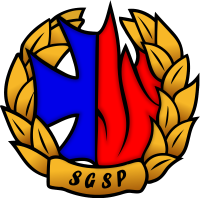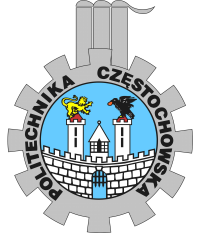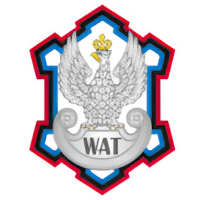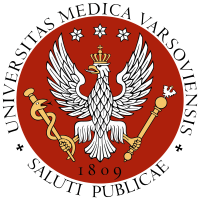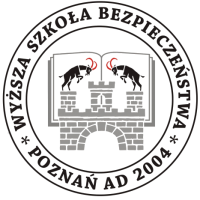Emergency management
PROCeed’s computer-based emergency response training platform enables the creation and launch of simulation applications in the form of interactive decision-making games.
No account required
Quick and easy introduction

Emergency management
PROCeed’s computer-based emergency response training platform enables the creation and launch of simulation applications in the form of interactive decision-making games
No account required
Quick and easy introduction

Role-playing decision-making games
The use of simulation techniques makes it possible to faithfully reproduce the real course of a selected critical situation by taking into account all the necessary roles, decisions, phenomena, physical objects or elements of the environment. By observing a dynamically changing simulated situation, the system user is able to make a variety of decisions that affect the subsequent course of the situation and the behaviour of other users.

Flood
Crisis management
The players take roles of a regional, two local, and three city crisis management teams in poland. They are up to solving over 100 problems by making the right decisions and, in consequence, choosing appropriate ways to proceed.

Epidemic
Crisis management
The players take roles of a regional, three town, and two community level crisis management teams in poland. They are up to solving over 220 problems by making the right decisions and, in consequence, choosing appropriate ways to proceed.

Train accident
Crisis management
The players take roles of a railway controller, train traffic dispatcher, and railway line operator somewhere in poland. They are up to solving over 20 problems by making the right decisions and, in consequence, choosing appropriate ways to proceed.
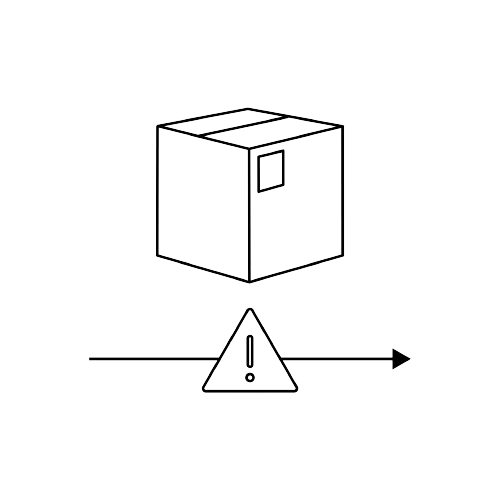
Supply chain
Logistics
The players take roles of a cargo deliverer, a road carrier, an intermodal operator and a recipient taking part in a merchandise distribution process somewhere in poland. They are up to solving nearly 100 problems based on the delivery status and their own experience.

Flood
Crisis management
The players take roles of a regional, two local, and three city crisis management teams in poland. They are up to solving over 100 problems by making the right decisions and, in consequence, choosing appropriate ways to proceed.

Epidemic
Crisis management
The players take roles of a regional, three town, and two community level crisis management teams in poland. They are up to solving over 220 problems by making the right decisions and, in consequence, choosing appropriate ways to proceed.

Train accident
Crisis management
The players take roles of a railway controller, train traffic dispatcher, and railway line operator somewhere in poland. They are up to solving over 20 problems by making the right decisions and, in consequence, choosing appropriate ways to proceed.

Supply chain
Logistics
The players take roles of a cargo deliverer, a road carrier, an intermodal operator and a recipient taking part in a merchandise distribution process somewhere in poland. They are up to solving nearly 100 problems based on the delivery status and their own experience.
What makes us stand out
Multi-variant scenario
Each game may differ from the previous one
Dynamics
The computer-simulated situation is constantly
Interaction
Each player, being part of a team within his role works with he others
Interactivity
Players influence the situation by solving decision-making problems
Location map
Visualization and control of objects on the map
Access from anywhere
Each player can participate in the game via a computer network
Multi-variant scenario
Each game may differ from the previous one
Dynamics
The computer-simulated situation is constantly
Interaction
Each player, being part of a team within his role works with he others
Interactivity
Players influence the situation by solving decision-making problems
Location map
Visualization and control of objects on the map
Access from anywhere
Each player can participate in the game via a computer network
Multi-variant scenario
Each game may differ from the previous one
Dynamics
The computer-simulated situation is constantly
Interaction
Each player, being part of a team within his role works with he others
Interactivity
Players influence the situation by solving decision-making problems
Location map
Visualization and control of objects on the map
Access from anywhere
Each player can participate in the game via a computer network

The use of simulation techniques makes it possible to faithfully reproduce the real course of a selected critical situation by taking into account all the necessary roles, decisions, phenomena, physical objects or elements of the environment. By observing a dynamically changing simulated situation, the system user is able to make a variety of decisions that affect the subsequent course of the situation and the behaviour of other users.

The use of simulation techniques makes it possible to faithfully reproduce the real course of a selected critical situation by taking into account all the necessary roles, decisions, phenomena, physical objects or elements of the environment. By observing a dynamically changing simulated situation, the system user is able to make a variety of decisions that affect the subsequent course of the situation and the behaviour of other users.
Benefits
Ready-made educational material
At the time of purchase of the license, the client, in addition to access to the games, receives a complete set of materials useful for conducting classes, e.g. an introductory presentation, a trainer's manual with a key to decision-making problems, other supporting materials
Proposal for organization of classes
Upon request, consultations on the organization of activities for students are possible, including: suggestions for assigning students to computer stations, dividing gameplay into multiple instructional units, suggestions for interpreting the report and conducting post-game discussions.
Flexible scope of the trainer's participation
It is possible to adjust the coach's participation during gameplay from not interfering at all, to pausing gameplay to consult with players, or commenting on the game using the built-in chat.
Attractive form of classes
The gameplay is a more attractive formula than typical classes, both for the instructor and the students. In the course of it, participants learn at the same time by solving specific problems posed to them, the overcoming of which raises the motivation of the players and increases the desire to continue playing.
Participation of remote students
The web-based design of the PROCeed application allows players to be turned on from any location equipped with Internet access. This allows for part-time and hybrid classes. It also gives students the ability to access from their room in the academic house.
Higher teaching efficiency
Thanks to PROCeed games, teaching efficiency is increased. Games develop practical decision-making skills in realistic situations based on actual events.By engaging actively in gameplay, players assimilate more than 80% of the transferred knowledge, which is unattainable in typical classes.
Ready-made educational material
At the time of purchase of the license, the client, in addition to access to the games, receives a complete set of materials useful for conducting classes, e.g. an introductory presentation, a trainer's manual with a key to decision-making problems, other supporting materials
Proposal for organization of classes
Upon request, consultations on the organization of activities for students are possible, including: suggestions for assigning students to computer stations, dividing gameplay into multiple instructional units, suggestions for interpreting the report and conducting post-game discussions.
Flexible scope of the trainer's participation
It is possible to adjust the coach's participation during gameplay from not interfering at all, to pausing gameplay to consult with players, or commenting on the game using the built-in chat.
Attractive form of classes
The gameplay is a more attractive formula than typical classes, both for the instructor and the students. In the course of it, participants learn at the same time by solving specific problems posed to them, the overcoming of which raises the motivation of the players and increases the desire to continue playing.
Participation of remote students
The web-based design of the PROCeed application allows players to be turned on from any location equipped with Internet access. This allows for part-time and hybrid classes. It also gives students the ability to access from their room in the academic house.
Higher teaching efficiency
Thanks to PROCeed games, teaching efficiency is increased. Games develop practical decision-making skills in realistic situations based on actual events.By engaging actively in gameplay, players assimilate more than 80% of the transferred knowledge, which is unattainable in typical classes.
Ready-made educational material
At the time of purchase of the license, the client, in addition to access to the games, receives a complete set of materials useful for conducting classes, e.g. an introductory presentation, a trainer's manual with a key to decision-making problems, other supporting materials
Proposal for organization of classes
Upon request, consultations on the organization of activities for students are possible, including: suggestions for assigning students to computer stations, dividing gameplay into multiple instructional units, suggestions for interpreting the report and conducting post-game discussions.
Flexible scope of the trainer's participation
It is possible to adjust the coach's participation during gameplay from not interfering at all, to pausing gameplay to consult with players, or commenting on the game using the built-in chat.
Attractive form of classes
The gameplay is a more attractive formula than typical classes, both for the instructor and the students. In the course of it, participants learn at the same time by solving specific problems posed to them, the overcoming of which raises the motivation of the players and increases the desire to continue playing.
Participation of remote students
The web-based design of the PROCeed application allows players to be turned on from any location equipped with Internet access. This allows for part-time and hybrid classes. It also gives students the ability to access from their room in the academic house.
Higher teaching efficiency
Thanks to PROCeed games, teaching efficiency is increased. Games develop practical decision-making skills in realistic situations based on actual events.By engaging actively in gameplay, players assimilate more than 80% of the transferred knowledge, which is unattainable in typical classes.
Affiliate program
Key client
When purchasing at least one game for a minimum of one semester
- Access to email support
- Access to error reporting form
Official representative
Successfully recommend at least one new customer
- Benefits of the "Key Client"
- PLN 1000 for each new customer
- In addition, 10% on the value of each sale
Co-author of materials
Prepare the game’s storyline as an expert and organize beta testing
- Benefits of the "Official Representative"
- PLN 10,000 for the full storyline of the new game and help in implementing it
- Lifetime 50% discount on the developed game
Actual terms of partnership to be confirmed with PROCeed team
Key client
When purchasing at least one game for a minimum of one semester
- Access to email support
- Access to error reporting form
Official representative
Successfully recommend at least one new customer
- Benefits of the "Key Client"
- PLN 1000 for each new customer
- In addition, 10% on the value of each sale
Co-author of materials
Prepare the game’s storyline as an expert and organize beta testing
- Benefits of the "Official Representative"
- PLN 10,000 for the full storyline of the new game and help in implementing it
- Lifetime 50% discount on the developed game
Faktyczne warunki partnerstwa do potwierdzenia z zespołem PROCeed
Customers
